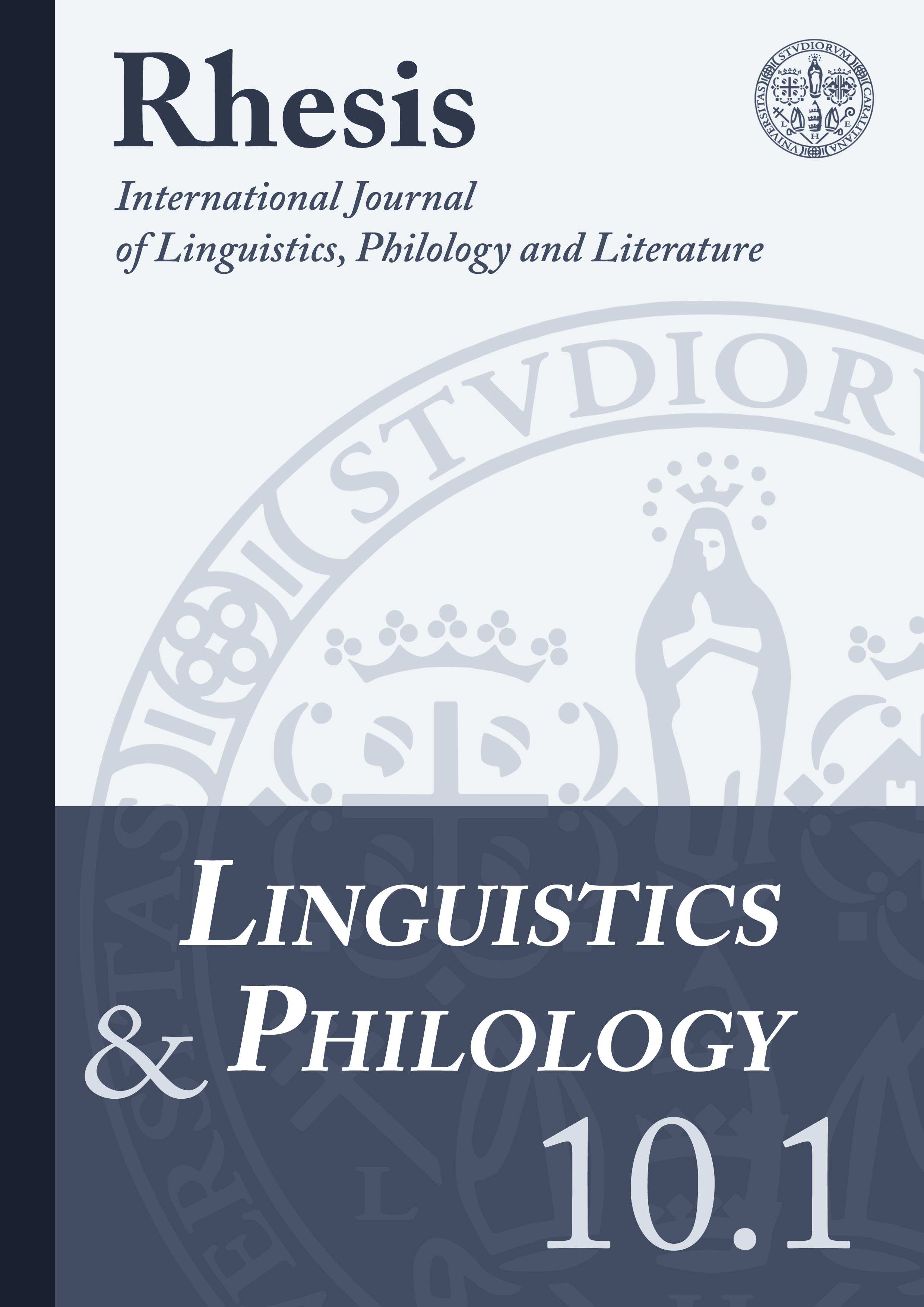Qualche riflessione per la costituzione di un corpus di latino tardo
Abstract
This paper aims to present some observations on the methods used to assemble and organise collections of texts, i.e. the corpora of what are wrongly known as the dead languages. Although more technical aspects such as how to format or check the corpus are not dealt with here, representativeness, adequate corpus size and effectiveness are three essential features that must be taken into consideration for any late Latin corpus.
Downloads
References
Blalock, Hubert M. (1984), Statistica per la ricerca sociale, Bologna, Il Mulino.
Conrad, Susan (2010), ‘What can a corpus tell us about grammar?’, in O’Keefe, Anne; McCarthy, Michael (eds.), The Routledge Handbook of Corpus Linguistics, London-New York, Routledge, 227-240.
Cuzzolin, Pierluigi; Haverling, Gerd (2009), ‘Syntax, sociolinguistics, and literary genres’, in Baldi, Philip; Cuzzolin, Pierluigi (eds.), New Perspectives on Historical Latin Syntax, vol. 1: Syntax of the Sentence, Berlin-New York, Mouton de Gruyter: 19-64.
Crystal, David (1992), An Encyclopedic Dictionary of Language and Languages, Oxford, Oxford University Press.
Gard, Jenset B.; McGillivray, Barbara (2017), Quantitative historical linguistics, Oxford, Oxford University Press.
Kytö, Merja (2011), ‘Corpora and historical linguistics’, Revista Brasileira de Linguística Aplicada 11(2), 417-457.
McGillivray, Barbara (2014), Methods in Latin Computational Linguistics, Leiden, Brill.
Morpurgo Davies, Anna (1992), ‘Il significato della linguistica storica nell’analisi delle lingue classiche’, in Aa.Vv., Atti dell’Accademia dei Lincei. La posizione attuale della linguistica storica nell’ambito delle discipline linguistiche (Roma, 26-28 marzo 1991), Roma, Accademia Nazionale dei Lincei, 65-86.
O’Keeffe, Anne; McCarthy, Michael (eds). 2010, The Routledge Handbook of Corpus Linguistics, London-New York, Routledge.
Panagl, Oswald (2003), ‘Danke ja! und danke nein! im Lateinischen’, in Held, Gudrun (ed.), Partikeln und Höflichkeit, Bern, Peter Lang, 238-246.
Purpura Gianfranco (2012), ‘Constitutio Antoniniana de civitate’, in Purpura, Granfranco (ed.), Revisione ed integrazione dei Fontes Iuris Romani Anteiustiniani (FIRA). Studi preparatori I. Leges, Torino, Giappichelli, 695-732.
Reppen, Randi (2010), ‘Building a corpus. What are the key considerations?’, in O’Keefe, Anne; McCarthy, Michael (eds.), The Routledge Handbook of Corpus Linguistics, London-New York, Routledge, 31-37.
Rissanen, Matti (2008), ‘Corpus linguistics and historical linguistics’, in Lüdeling, Anke; Kytö, Merja (eds.), Corpus Linguistics. An International Handbook: vol. 1, Berlin – New York, de Gruyter, 53-68.
Rühlemann, Christoph (2010), ‘What can a corpus tell us about pragmatics?’ in O’Keefe, Anne; McCarthy, Michael (eds.), The Routledge Handbook of Corpus Linguistics, London-New York, Routledge, 288-301.
Selig, Maria; Eufe, Rembert; Linzmeier, Laura (2017), ‘CoLaMer (Corpus du latin mérovingien)’, in García Leal, Alfonso; Prieto Entrialgo, Clara Elena (eds.), Latin vulgaire latin tardif XI, Hildesheim-Zürich-New York, Olms-Weidmann, 730-741.
Tognini Bonelli (2010), ‘Theoretical overview of the evolution of corpus linguistics’, in O’Keefe, Anne; McCarthy, Michael (eds.), The Routledge Handbook of Corpus Linguistics, London-New York, Routledge, 14-27.



